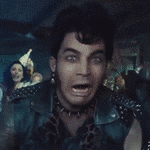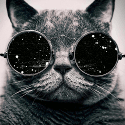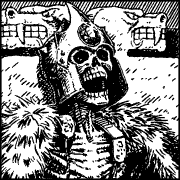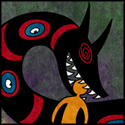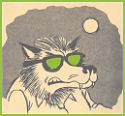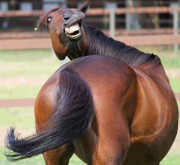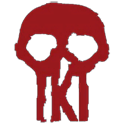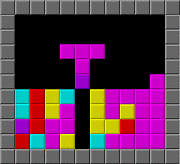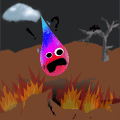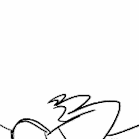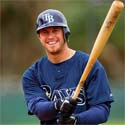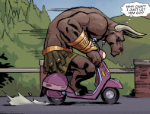|
 Voices From Chernobyl - Svetlana Alexievich The author spent ten years interviewing over five-hundred eye-witnesses of the Chernobyl disaster to create this book. There are a few touching moments, but most of it is soul-crushing and depressing. Picked it up because it reminded me of some of the Vietnam War oral history books I've read. Compared to them, it wasn't quite the lurid nightmare, but some of those stories were brutal, particularly when a person was talking about their lost lover or lost child. Difficult, but excellent read. I'd highly recommend it for anyone remotely interested in the event. Oliver Twist - Charles Dickens Though I know many Dickens stories through stage adaptations and films, I'd never sat down and read one of his works. Twist is one that I'd only know about through pop culture osmosis, but I was surprised to find that what I knew about it (the whole "please, sir, can I have some more" bit) was such a small part. I didn't expect the story to be what it was, but it quickly became predictable. Ultimately, while I enjoyed the story, the reading of it was painfully dull. I get that Dickens was writing it as a serial, and maybe I would have enjoyed it more reading it as such, but going straight through it as a novel was just such a slog. Not sure if I want to continue reading Dickens' original works, or if I'd rather just stick to adaptations. The Great Gatsby - F Scott Fitzgerald Another book I've been meaning to read for a while. Enjoyable. Great writing and characters, but ultimately not as earth-shattering as I thought it might be. But then again, the idea of the American Dream being a dangerous myth isn't exactly new in our day and age. Still, I can appreciate why it's regarded as a classic, and I'm glad I finally finished it.
|
|
|
|

|
| # ? Jun 1, 2024 13:49 |
|
thespaceinvader posted:1: Cryptonomicon by Neal Stephenson I'm moving on to give KJ Parker a last chance with Academic Exercises. I've had issues with Parker's work in the past - I like the writing, I like the plots, it's clever and well-executed... but the protagonists are too frequently just insufferable genius vile arseholes, destroying the world for the pettiest of reasons which... I don't really like in escapist fantasy. It may be an accurate insight into the human condition or whatever, but I don't specially want to read about it. Academic Exercises has already shown glimmers of both the things I like and the things I don't about Parker's work, but fortunately so far, more of the former than the latter.
|
|
|
|
Early end-of-April update 1. The vanilla read a set number of books in a year. - 20/40 3. The non-white author - The Satanic Verses by Salman Rushdie 4. Philosophy - Either Derrida or Spinoza 5. History 6. An essay - Where the Stress Falls. Essays. by Susan Sontag. 9. Something absurdist - Waiting for Godot 15. Something published this year or the past three months 16. That one book that has been sitting on your desk waiting for a long time - Feast of the Goat by Vargas Llosa 17. A play - Waiting for Godot 18. Biography - Ingar Sletten Kolloen's Hamsun biographies 19. The color red 20. Something banned or censored - The Satanic Verses 21. Short story(s) - The Lady with the Dog, and other stories by Anton Chekhov 22. A mystery 1. Hear the Wind Sing, Haruki Murakami 2. Pinball 1974, Haruki Murakami 3. On The Beach, Neil Shute 4. Collected Poems by Per Sivle 5. History of the Siege of Lisbon, José Saramago 6. Wayfarers, Knut Hamsun 7. The Seed, Tarjei Vesaas 8. Morning and Evening, Jon Fosse 9. The Collected Poems of Alberto Caeiro, Fernando Pessoa 10. Doktor Faustus, Thomas Mann 11. Collection of poems, Gabriela Mistral 12. Doctor Glas, Hjalmar Söderberg 13. Love in the Time of Cholera, Gabriel García Márquez 14. Invisible Cities, Italo Calvino 15. Inherent Vice, Thomas Pynchon 16. Road to the Worl'd End, Sigurd Hoel 17. The Cyberiad, Stanislaw Lem 18. Heart of Darkness, Joseph Conrad 19. The Clown, Heinrich Böll 20. The Death of Ivan Ilyich, Lev Tolstoy 20/40 I must admit, I haven't been as productive on my reading front as last month, for various reasons. But I went through some interesting stuff nonetheless. Road to the World's End by Sigurd Hoel is a very interesting book in many ways. It follows a child from a very early age up until his Lutheran Confirmation, which in the 19th century (and in the rural parts, early 20th century) Norwegian society was the most important ritual for any rural boy. This was considered the turningpoint to adulthood, and it was also a prerequisite for being able to get married, inherit or own a farmland, and so forth. So for all intents and purposes, we follow the character throughout his life, from toddler to adulthood. And everything is told from the child's point of view, too. So the prose of the book changes gradually as Anders, the main protagonist, gets older. So for example, in the very first chapters everything is described in a very childish and naive manner. This book has since been praised by critics for having such a sympathetic view of the child, which was a rarity at the time it was published (in 1933). Hoel also uses this book as a way to discuss psychological and even somewhat existential questions. At the end of the book, Anders recites what he allegedly heard one of the other charaters saying once, that "Everything new and important in life happens before you reach the age of 10. From that point on, life just repeats itself." Edit: There actually is an English translation out, and I've changed the titles to reflect that. The Cyberiad was quite the experience too. Stanislaw had a really vivid imagination. My favourite stories from these were the first few stories, and the one about the extremely childish king who loved hide-and-seek.I probably would never have read this had it not been suggested by someone else for the Wildcard challenge. Heart of Darkness felt like a very brutal and visceral description of colonialism. It follows a man named Marlow, as he travels the River Congo to meet up with a famous Ivory trader named Kurtz, who is rumored to be very ill. It's been a couple of weeks or so since I read it, so I don't have everything freshly in mind, but it seemed to thematically to comment on a sort of moral ambiguity, and to question the rhetoric used to justify colonial activities in Africa, by highlighting some very brutal scenes and situations. The Clown follows Hans Schnier. He grew up in a very wealthy protestant home, who in an act of opposition towards his family's expectations and become a clown. It starts off with describing him as extremely down on his luck, as he travels back home to Bonn, with a bum kneee, trying to get a hold of his girlfriend who ran away to marry a Catholic, on her family's behest. The vast majority of the book is Schnier's monologues as he recalls events and reflects on his life up to the moment his girlfriend leaves him. And through this Böll sheds a critical light on post-war (west) Germany as well as the social conflict/struggle between Catholics and Lutheran church. The Death of Ivan Ilyich is all about mortality, life and death, and what it truly means to live. Ivan seemingly lived a happy and just-so life, working his way up the bureocratical ladder as a jurist and doing everything society expected from him. But he starts reflecting on hiw own life, and struggles with coming to grips with his own mortality when he gets ill after falling and hurting his side while trying to hang up some curtains. ulvir fucked around with this message at 13:26 on Apr 26, 2015 |
|
|
|
Catching up on stuff. Progress: 6 of 25 complete. 1. The Bone Clocks, David Mitchell. 5/5. 2. The Martian, Andy Weir. 2/5. Booklord Challenge 1 completed: Read a book about space. 3. The Blind Owl, Sadegh Hedayat. 0/5. Booklord Challenge 2 completed: Read this lovely book. 4. Atlas of Remote Islands - Fifty Islands I have Never Set Foot On and Never Will, Judith Schalansky. 5/5 And now for something completely different: an art piece/prose poem in the form of an atlas. This remarkable book details, seemingly at random, 50 or so of the most remote islands in the world, and gives a short one-page story about each. So much of it is tantalizing - tiny snippets of obsessed men who spend their lives digging for pirate's gold; arctic exploration into islands full of nothing; a coral atoll destroyed by France's test of its H-bomb; a man who settles on a remote island after he realizes he has known how to speak the language there, inexplicably, since he was a small boy. This is a quick read, and a unique experience. Can't recommend this enough for anyone who has pored over a National Geographic map and let their minds wander. Booklord Challenge 3 completed: Read a female author. 5 The Golem and The Djinni, Helene Wecker. A fascinating story built on the premise that jinnis are real, and dark magics still exist on the fringes of the world, allowing the creation of golems (from Hebrew folklore) and other occult acts. This book tells the tale of a golem whose master dies only days after creating her, and a jinni who is released from his prison after a thousand years - to find he has no memory of how he was captured. Set in late 19th-century New York, the book explores two immigrant cultures and how these two creatures - not human but in some ways more so - navigate their new worlds. The character studies in the book are fascinating and follow many varied threads, and the end is tragic and satisfying. My only quibble was the book dragged a bit at the halfway mark before the pace built back up into the end. Highly recommended. 4/5 Booklord Challenge 4 completed: Read a book about the unreal. 6. The Magicians, Lev Grossman. I loved this book. Will get around to writing a review when I finish the series. 5/5
|
|
|
|
thehomemaster posted:https://www.goodreads.com/user/show/13421112-thomas 15. Debt: The First 5,000 Years by David Graeber Very good history of capitalism/debt/money, mostly from the point of view of 'how the f***did we get here?' A lot of interesting facts, great discussion, even-handed in many regards (capitalism =/= free market) and overall well-written, even if I noticed pet words. We all do that. The first section focuses on where debt came from, and the second looks at the history of humanity from the perspective of fiscal policy over the centuries. Must read. 16. The Invisible History of the Human Race: How DNA and History Shape Our Identities and Our Futures by Christine Kenneally The only book I've read from this year's Stella Prize shortlist. It's an indepth and fascinating look at genes and family history, DNA and our identity. It's very well-structured, informatively written and engaging. At times my mind wandered because there is a lot to ingest, but overall it's solid, with plenty of interesting anecdotes and personal accounts. Definitely recommend it for anyone interested in either their genetic past or future. 17. The Most Good You Can Do: How Effective Altruism Is Changing Ideas about Living Ethically by Peter Singer I wanted to read this book to learn a little bit more about Effective Altruism. However, you can probably get away with just reading about it online for free. But then proceeds from the book go to charity, so reading it for free online wouldn't be effective.... Nonetheless, this is a well put together documents of all the ethical reasoning and concerns that surround effective altruism aka How You Can Most Effectively Save the World! Interestingly Peter Singer never addresses whether or not people are worth saving (if you want to take a Malthusian, nihilistic view of the world). I also found it interesting on further research the types of jobs one should take in order to be an effective altruist. To me at least there seems to be a lot of contradiction, but that it's OK because it's for a Good Cause. I don't think Peter Singer presents a fullproof argument, and a lot of his arguments are based on his point of view being correct in the first place. It seems more aimed at people who already want to do good, don't know how and need a blue print for how to live an ethical life. Atfer all my thinking on the topic I've almost come to the conclusion that really unless you earn a ridiculous amount, the only thing you should be giving away is your blood (truly something that you don't need, seeing as it automatically replaces itself). Some contraditcions: - We should most effectively give our money to charities that have the best 'returns', yet we shouldn't have factory farming despite it being the most efficient source of feeding, I dunno, 7 billion people and growing. - On that topic, if going vegan is so good for the environment (it is) then why are we saving people? Surely having more people on this Earth is bad for the environment. To be fair Peter does mention sterilising the planet at one stage, but it isn't given considerable thought. - The Mongol invasion is Bad, and yet it had good consequences. Effective altruism is Good, and yet... (see above vis a vis world population) - Why push hedge fund managers, entrepreneurs and other high-flying careers on people, just because they are effective in that you earn more and can therefore give more? Interestingly there is no mention of emergency services as an altruistic career (or teachers) presumably because they don't earn enough. But also because the difference you can make is marginal over any other person who would get hired. Why is that a problem when, if you were offered a job as chemical engineer to make bioweapons you should take it because you will do marginally less harm? Is doing marginally less harm really that much more important than doing marginally more good? - Effective altruism to me means fixing the easy problems first. Consider your work day. You have a big report to do that is vital for a meeting with potential clients. But you put it off and do lots of tasks, like replying to emails, customer service, what have you. The report doesn't get done and the company loses the tender. Sure, you're moeny can fix the lives of many more people if you are treating malaia, worms and blindness, but something tells me these are momentary issues, almost feel-good charities as opposed to, I dunno, researching how to get off the planet, or even to reverse global warming? Overall I think this is a book of presumptions, and yet if you wish to give your money to charity, I would recommend this book so you don't end up giving it to the homeless because you feel bad, or something equally heart-string pulling. It also seems to have a neoliberal bent, with this focus on what the indivudl can do, how governments have failed, etc. It's almost a bit insidious, without meaning to be. Honestly, I probably have more questions about Effective Altruism now after reading it than I did before. 18. Resident Alien Volume 1: Welcome to Earth! (Resident Alien #1) by Steve Parkhouse, Peter Hogan, Philip Simon Pretty straight down the line mystery story. With an alien. Currently Reading: Shogun (Asian Saga #3) 20 Master Plots: And How to Build Them The Burglary: The Discovery of J. Edgar Hoover's Secret FBI Helen of Troy: Goddess, Princess, Whore The Iliad thehomemaster fucked around with this message at 07:35 on Apr 27, 2015 |
|
|
|
Peter Singer has some good ideas, but there's a lot that he writes about that I either find problematic or just outright disagree with. It's been years since I've looked at anything by him, though, so I might take a look at that. If you're interested in more of Singer, his Practical Ethics is pretty iconic. Some of the stuff he writes about is pretty surreal and out there.
|
|
|
|
I didn't think it was too out there, and I'm not that fussed about reading anymore by him. This book did a pretty good job as an overview. But I will look into Practical Ethics, cheers.
|
|
|
|
Over a month since my last post, or: update time. #21: Replay - Ken Grimwood: A book with a similar premise to Groundhog Day – namely, one guy who is replaying his life (more than just one day) from a certain point in time over and over again. 4/5. #22: A Stranger in Olondria - Sofia Samatar: Yet another 2014 Nebula Award nominee which is better than Ancillary Justice, which makes three in total. (Still don't have a problem with Ancillary Justice winning the Best Novel Hugo, because the nominee pool was mostly crap that year and, in retrospect, I am heartily glad that Larry Correia didn't win). WRT ASIO: A complicated book, and a 5/5. #23: Last Call: The Rise and Fall of Prohibition - Daniel Okrent: A book documenting Prohibition, including its origins. Summary: Prohibition doesn’t work. (See also: drug prohibition WRT marijuana). 4/5. #24: The Thousand Autumns of Jacob de Zoet - David Mitchell: A book about Dutchmen (and other nationalities) in early 19th-century Japan. I've also read Cloud Atlas, and judging by those two books, I might check out the rest of DM's oeuvre. 4/5. #25: The Left Hand of Darkness - Ursula K. Le Guin: The classic sci-fi novel, which I finally finished reading. It won the 1970 Hugo, and deservedly so. Bad luck for Slaughterhouse 5, which was nominated in the same year. 4/5. #26: Runelight – Joanne Harris: The second book in the Runemarks series. Not quite as good as Runemarks, but still worth a read. 3/5. (If Goodreads allowed half-stars, this would get a 3.5). #27: Not my Father’s Son – Alan Cumming: In which the titular actor discusses his relationship with his father and his discovery of family secrets regarding his maternal grandfather. 3/5. #28: Hack Attack: How the Truth Caught Up with the World’s Most Powerful Man – Nick Davies: Or, why Rupert Murdoch is a wanker and why British news media and politics are compromised because of him. 3/5. #29 & 30: Saga vol. 1 & 2 – Brian K. Vaughan: I’ve decided to include a few graphic novels in my reading diet. This was a fun read, and the artwork was great. 4/5.
|
|
|
|
Groke posted:1. Menneskefluene by Hans Olav Lahlum. Update through late April (unlikely to finish another book before the end of the month unless it's a very short one): 10. The Three-Body Problem by Liu Cixin. Recent darling of the Internet, and worth it; a captivating tale placing contact with terrifying aliens against the backdrop of the Chinese Cultural Revolution and its aftermath. This hits booklord challenge points 3 (non-white author) and 19 (the colour red being a massive symbol of Chinese communism and the Cultural Revolution in particular). 11. Katalysatormordet by Hans Olav Lahlum. #3 in the murder mystery series, just as good a read as the first two. 12. The Man Who Mistook His Wife for a Hat by Oliver Sacks. This was my wildcard; a very fascinating and accessible read for the layperson. I've seen it quoted and referred to many times (it's thirty years old and I've been reading pop science stuff for at least that long but never actually read this book before). The human brain and how it functions and malfunctions in weird ways is, um... weird. 13. De Fem Fyrstikkene by Hans Olav Lahlum. #4 in same murder mystery series, yeah so I went on a bit of a binge here. This time around it's not a book-length novel but a collection of three shorter tales detailing less extensive mysteries; so that hits booklord challenge point 21. 14. Pastoralia by George Saunders. Stole this when it was wildcarded to someone else because it sounded interesting and it was pretty drat great. Hilarious and sad. Pretty sure it counts as post-modern as well so that's booklord challenge 8 taken care of. 15. Kameleonmenneskene by Hans Olav Lahlum. Yeah, yeah, #5 in that murder mystery series. Time has progressed up to the year 1972 and the backdrop of the case is heavily political (this was, among other things, the year in which Norway was heavily divided about whether or not to join the EU, or EEC as it was then (we didn't); it was also the year of my birth). It's cool to read stuff set during this time (the author is principally a historian specializing in the post-war Norwegian politics, and he draws heavily on this expertise). Still reading Worm inbetween other stuff although not very quickly. So far: 15/40 overall goal, of which 1/5 allowed rereads 5/10 Norwegian books 4/5 nonfiction Booklord challenge points met: 3 (Three-Body Problem) 5 (Njålssoga), 8 (Pastoralia) 12 (Ultima) 13 (Teckla; teleporting sorceror-assassins aren't particularly real) 14 (The Man Who Mistook His Wife for a Hat) 15 (Ultima again, published November 2014) 16 (Njålssoga) 19 (Three-Body Problem) 21 (De Fem Fyrstikkene) 22 (Menneskefluene).
|
|
|
|
Schizotek posted:Is it too late to start a challenge? If not then thirty books. 2. King Leopolds Ghost by Adam Hochschild
|
|
|
|
Schizotek posted:2. King Leopolds Ghost by Adam Hochschild That's a fantastic book.
|
|
|
|
Mr. Squishy posted:1 One Third of a Nation by Arthur Arent and others. A play exploring the dire housing situation in depression-era New York. Agit-prop long past its sell by date but still fascinating, mostly for being in such a foreign style. (17) 16 Cakes and Ale by W. Somerset Maugham. Brisk tale of snobbery and cosyness in the world of British publishing 50 years ago. An awful literary wife has appointed an awful hack to drum up an awful biography for her now-dead husband (who was mostly awful, but wrote a few good books), all overseen by the smug narrator who knows that the true merit lies beyond all this, in the bosoms of the sexually giving working classes and America. Maugham's satire of his colleagues is good but I don't think he has anything to say about what he admires. Bit hypocritical for the book takes a swing at Henry James for walking away from America and attempting to write about duchesses. I used to know the name of the chap this book was an insult to. Apparently Maugham befriended him, for material. 17 The Stain by Rikki Ducornet. Never heard of her, picked this up because I saw an uncorrected proof going for 50p and the first few lines seemed engagingly mental. The rest of the book followed through. It's like one of those wedding feasts Flaubert turns up his nose at except everybody's down with the party. Basically a 200 page orgy with religious-theming. 18 Libra by Don DeLillo. I don't like DeLillo but I quite liked this one, I guess because I've got more interest in the JFK assassination than a dumb baseball match or road movies. It's still shocking that an author of his standing can't write dialogue though. But hey, he can come up with some nice metaphors, though occasionally he lets himself get carried away. 19 Herzog by Saul Bellow. I really enjoyed this one. Old jewish man feels hard-done-by yet self-loathing as he constantly thinks about his awful ex-wife, etc. 20: The Cyberiad by Stanislaw Lem as translated by Michael Kandel. Bed time stories for parents to read when they want their children to grow up to be nerds. Very enjoyable. 21 Dead Babies by Martin Amis. A birthday present I was given... 8 years ago? Anyway, a whole vicarage full of awful druggy people but once you skim past the first 30 pages (which are a bit smug), it gets rather funny. Like Waugh or, I suppose, Kingsly Amis, these awful stereotypes tear themselves apart. Worst of all of are the Americans, of course, who take a rather Nietzchy view of things (the dead babies of the title are things like, uh, morals to be left by the wayside). It ends rather explosively but I had not been reading NEARLY CLOSELY enough to either understand or care. 21/60 1 2 3 4 5 6 7 8 9 10 11 12 13 14 15 16 17 18 19 20 21 22 Mr. Squishy fucked around with this message at 16:22 on Apr 29, 2015 |
|
|
|
March and April update! 1. The vanilla read a set number of books in a year (16/45) oliven posted:Next up is... I'm not really sure! Either Catch-22 by Joseph Heller or The Importance of Being Earnest by Oscar Wilde. I haven't decided yet. I did both. One was pleasant, one was not. 13. The Importance of Being Earnest by Oscar Wilde: Pretty good! I've not read a lot of plays, and I think this is the first play I've read voluntarily (as in, not part of a class assignment). A fun, short read. 14. The Alloy of Law by Brandon Sanderson: I appreciate Sanderson's efforts in continuing to develop the Mistborn universe. I really enjoyed the first Mistborn trilogy so it was nice to see it fast forwarded some three hundred years. Sanderson is really quite good at throwbacks to the previous books without being too obvious. I especially enjoyed how Spook's street slang is now considered some form of complicated "high" dialect reserved for scholars. 15. Catch-22 by Joseph Heller: I struggled to get through this to be quite honest. It's probably great or whatever but I did not enjoy it at all. It's making me question the whole idea of broadening my reading horizons. Jesus Christ. 16. The Colour of Magic by Terry Pratchett: I feel like this book is doing for me what Neil Gaiman's books are trying to do, but failing. Everything is magical and weird, but where Gaiman's books seem a little forced to me, The Colour of Magic just sort of works. It's quirky and a little disjointed, sure, but it's not necessarily for the sake of being weird, or if it is, I don't mind it as much. I get the sense that most of the plot points are more or less thought out, and even when the story shifts and gets really strange I don't find it annoying. Next up will probably be Unwind by Neal Shusterman.
|
|
|
|
Goddamn, I don't see how anyone could not enjoy Catch-22. What exactly didn't you enjoy?
|
|
|
|
thehomemaster posted:Goddamn, I don't see how anyone could not enjoy Catch-22. What exactly didn't you enjoy? I didn't like it either. It reminded me of something by George Orwell, but giving the impression that it's supposed to be funny somehow? I don't understand what's even supposed to be enjoyable about it.
|
|
|
|
If you didn't find the Major Major Major Major chapter even a little funny then I don't know what to tell you. I need to read that book again, it's been years.
|
|
|
|
thehomemaster posted:Goddamn, I don't see how anyone could not enjoy Catch-22. What exactly didn't you enjoy? I'm probably an uncivilized cretin, but I just could not get into it. Every single character was tedious, the circle arguments were ridiculous and I just cannot fathom that any of it would be remotely plausible at any point in any time. Maybe I'm missing the point and it's not supposed to be plausible. Maybe my sense of humour is terrible. Doc Daneeka being pronounced dead as he's loving standing right there is just... loving what, I don't know. Is it supposed to be funny? It just really wasn't my jam 
|
|
|
|
Even though I think you're a bit weird, please don't not expand your reading horizons because you didn't like this one book.
|
|
|
|
Yeah if you don't think absurd illogical conclusions are funny then that book just might not be your speed.
|
|
|
|
CestMoi posted:please don't not expand your reading horizons because you didn't like this one book.
|
|
|
|
I'm calling it for April, I think, I'm halfway through Five-Twelfths of Heaven but I'm probably not finishing it by tomorrow. Still need to do the writeup, but stats: 15 books, 1 nonfiction, 2 rereads.Mr. Squishy posted:20: The Cyberiad by Stanislaw Lem as translated by Stanislaw Lem (I assume). Bed time stories for parents to read when they want their children to grow up to be nerds. Very enjoyable. If this is the English translation, it's by Michael Kandel, who deserves some kind of goddamn medal for his handling of Lem's work, especially The Cyberiad. He's done a bunch of other Lem translations, including Mortal Engines (more stories in a similar vein to The Cyberiad), The Star Diaries (short stories not at all like The Cyberiad), and Memoirs Found in a Bathtub (I'm not even sure how to describe this).
|
|
|
|
CestMoi posted:Even though I think you're a bit weird, please don't not expand your reading horizons because you didn't like this one book. That's fair. It was an exaggerated statement, not to be taken literally. I've already read a bunch of stuff I wouldn't normally pick up, so it's all good. Mahlertov Cocktail posted:Yeah if you don't think absurd illogical conclusions are funny then that book just might not be your speed. In retrospect it is possible I could have made a better choice, yeah.
|
|
|
|
Had a slow April because I was reading the entire run of Preacher (which was great, but comics don't count in my totals), also work was busy. I doubt I will finish anything else by tomorrow so since my last update I've read: Nelly Arcan - Exit Heather O'Neill - The Girl Who Was Saturday Night Here's my progress on the Booklord challenge: 1. The vanilla read a set number of books in a year. (Currently at 22/35) 2. Read 10 books by female authors (Currently at 7/10) 3. 4. Philosophy 5. History 6. 7. 8. 9. Something absurdist 10. 11. 12. 13. Something dealing with the unreal 14. Wildcard 15. 16. That one book that has been sitting on your desk waiting for a long time 17. 18. 19. 20. Something banned or censored 21. Short story(s) 22. A mystery Currently reading a book on urban cycling and also slowly making progress through my wildcard.
|
|
|
|
ToxicFrog posted:If this is the English translation, it's by Michael Kandel, who deserves some kind of goddamn medal for his handling of Lem's work, especially The Cyberiad. It was the English. Well, shame on my copy for not naming him, closest they come was a copyright for Seabury press.
|
|
|
|
Female authors: 5/24 Non-fiction: 3/12 Goodreads. The main part of The Changelings is basically a series of set-piece action sequences, each of which is relatively fine, and there's a sort of mystery established at the beginning to kind of link everything, but it doesn't really go anywhere. Then the book suddenly and anticlimactically ends with an exposition dump setting up the sequel. It wasn't the worst thing I've read, or even the worst thing I've read recently, but it was really generic and without any particular value or merit. If you're looking for a bog-standard YA fantasy adventure, this is one. Killer Cupcakes is hilariously bad. I couldn't stop laughing the whole way through. I can't believe a grown adult wrote this. The whole thing comes across as a story invented by a little girl playing with dolls at her grandmother's house. The protagonist is living a Barbie-doll life - she does adult things, but in the way a child might understand them. Even the way she dresses (jeans, a pink t-shirt and pink platform stilettos) and what she eats is childish; throughout the book she's always eating cakes and biscuits and pastries and the one exception is when she goes out for burgers - and gets sauce all over her face. On top of that, the writing is incredibly unsophisticated - everything is explained, characters say what they're feeling, nothing is just implied or demonstrated through dialogue and action, and this extends even to the actual mystery. The author doesn't seem to trust her audience to be able to figure out or understand anything not directly spelled out for them. It's like the book was written for its own characters, because they actually are that dim - not to mention one-dimensional and, again, childish. It's also free on Amazon if you want to see how bad it is. The Long Goodbye is a bit longer and slower than the previous books, I think, and less funny. If I were recommending a Raymond Chandler book I'd pick Farewell, My Lovely, but they're all good.
|
|
|
|
Mr. Palomar by Italo Calvino - This was chill as hell. It was basically about this old dude tooling around Italy, looking at birds and the ocean and stuff and trying to avoid looking at topless sunbathers lest people think he was a perv, and basically just thinking about life and death the whole time. Like one entire chapter will be him looking at a lizard eating flies and thinking about life. The Blue Book by A.L. Kennedy - was enjoyable, I liked the meta stuff about reading in general and when the book was talking directly to the reader, like "this is your book, you smell the odor of the pages and feel the weight in your hands" (which was pretty funny reading it on a Kindle). There was a twist at the end which I felt could have come sooner, as it really defined the relationship between the two main characters. Everything is Illuminated by Jonathan Safran Foer - Powerful stuff, and with some genuinely hilarious sections. A few particular highlights were some of the books within the book, like the Book of Recurrent Dreams and the Book of Antecedents. Currently starting We Are All Completely Beside Ourselves by Karen J Fowler, which is off to a pretty interesting start. I will probably do an update on my actual challenge progress for the end of this month, since we are a third of the way through the year.
|
|
|
|
Mahlertov Cocktail posted:If you didn't find the Major Major Major Major chapter even a little funny then I don't know what to tell you. I need to read that book again, it's been years. Pretty much this. The absurdity of the bureaucracy is the entire point. Probably one of the few laugh out loud books I've read! I suppose the only thing to learn from this is that not all classics are serious (at least, in form). Question though: did Heller ever write anything else at least close to as good as Catch-22?
|
|
|
|
Nope, nothing even close.
|
|
|
|
thehomemaster posted:
There are almost no real classics that aren't pretty funny in some way.
|
|
|
|
thehomemaster posted:Question though: did Heller ever write anything else at least close to as good as Catch-22? Has anyone?
|
|
|
|
Corrode posted:Has anyone? yes
|
|
|
|
Sometimes it feels like I'm constantly saying "This was a good book" or "I liked this book a lot" when I rate books on Goodreads or post them here. It's tough to get over the insecure feeling that I'm not critical enough and rate things too highly, even though it's probably all confirmation bias as I tend not to finish the books I don't like and generally don't talk about those ones at all. What I'm trying to say was that this was a really good month and I like all books. (Except the bad books gently caress those books) 19. [Wildcard] Oranges Are Not the Only Fruit by Jeanette Winterson. I liked this, and would probably not have picked it up if not wildcarded (as it seems to be a UK school reading list kind of book). This short coming of age story dealt with some really lovely situations and heartbreaking events in a light and comforting tone. Depressing stuff, told with a feeling of hopefulness. 20. [Space] A Fire Upon the Deep by Verner Vinge. After Rainbows End I was left unsure about Verner. Turns out all the praise heaped upon him is likely because of this book, because this one was great. This was a well paced, fun and exciting, space opera/chase movie/first contact novel. Super entertaining, held up by interesting events, interesting tech, and interesting fuedal societies of hosed up psychic rat puppies. The characters dialogue was still fairly undeveloped, but it didn't bother me as much. 21. [Love and Hate] The Annotated Lolita by Vladimir Nabokov was a beautifully written book about, and from the point of veiw of, a poor misunderstood sex offender who gets hardcore seduced by a sexy, sexy preteen. (No, he's a horrible person. This book is fantastic) 22. [Banned/Censored] American Psycho by Bret Easton Ellis continued with my short trend of horrible POV character novels. I loving loved this. I can honestly say I've never read anything quite like it. The slow decent into insanity, starting with one-off sentences of murderous strangness and tumbling like an avalanche into some of the most horrific scenes I've ever read. Shifting from darkly hilarious to appalling as graphic sexual mutilations are described in the same disconnected, obsessive tone as dinner reservations and fashion choices. The chapter on Whitney Houston chilled me to more core and I almost had to put the book down in disgust. The Genesis chunk had me choking back tears and bile. The Huey Lewis and the News debacle should be classified as a war crime. I'm currently wearing black, slim fit jeans by Levis. My socks are black and grey checkered from Calvin Klein. I'm wearing a teal-blue, soft collared, two-button polo by Indian children from The Gap. I just ate a handful of Corn Nuts from Safeway. If this review was a woman it'd be a hardbody like my girlfriend. I came twice while writing this on my Logitech g710+ keyboard with the cherry brown switches (with rubber damping).
|
|
|
|
April Update:Stravinsky posted:1. 18/52 books in a year 11. The Nurture Effect: How the Science of Human Behavior Can Improve Our Lives and Our World by Anthony Biglan - Loved it. Its written for laypersons, so it isn't as detailed or technical as I may have preferred, but the tone was so god drat optimistic. We talk a lot in the field about how we could save the world, and here is a comprehensive outline of how to do it. I like how the scope kept moving ever outward, focusing on family matters and then education and criminal systems and finally, the world. I particularly like the parts about providing parent training and support. 12. Willpower: Rediscovering the Greatest Human Strength by Roy F. Baumeister & John Tierney - Awful. Absolutely awful. The majority of the book outlines C-list celebrities and somehow that is evidence for certain ideas on willpower. Drew Carey hired this guy to organize his desk! Drew paid him thousands of dollars, so it must work and that guy's opinions on willpower must be scientific and correct! David Blaine says this about willpower, and look at all the stunts he's done on Oprah! The book cherry picks studies, often ones with GLARING issues in their design or conclusions. The authors often go off-track and make statements or give advice that is completely opposite the scientific consensus, such as AA being the most effective treatment for alcoholism. 13. Neuromancer by William Gibson - Short, quick, I enjoyed the action and some of the twists. There were a few things that made me wince--the punk samurai cyborg being one---but it was cool to see where so many tropes in the genre originated. I feel like my experience with the book suffered at points because I would get irritated with a cliche....only to remind myself that this is where everyone else stole it from. 14. The Terrible and Wonderful Reasons Why I Run Long Distances by Matthew Inman - Recommended by a friend. Not funny. We are not friends anymore. 15. If Chins Could Kill: Confessions of a B Movie Actor by Bruce Campbell - I enjoyed this a lot. Bruce is almost as funny and affable in his writing as he is on screen. Its cool hearing his impressions of places in Michigan, places were I grew up. 16. Brave New World by Aldous Huxley - Wow. I nearly counted this as a 'Behaviorism' book because Huxley was apparently terrified of it. Everyone praises this book for its world building but I thought the author was sloppy about it, lumping nearly everything together in one excruciating info dump at the beginning of the novel. There's a few plot contrivances that were just too easy and predictable, such as the controller mentioning off-hand that he lost a woman in the wilderness over a decade ago, and the protagonist just happening to find her paragraphs later. Huxley does a good job of painting both cultures as horrible, but I don't know if that was his intent. 17. Boneshaker by Cherie Priest - My first steampunk book ever. A giant drill goes nuts in Seattle and hits a gas vent that turns people into zombies. To contain the gas, a 200 foot wall was built around the city. For something with zombies in it, that was the hardest part for me to accept. The setting was interesting enough, and there were highly enjoyable characters....but neither of the main characters were. Both the single-minded mom and the stubborn teen lacked personality, and both were nearly entirely passive the entire book, being lead like a cow from location to location by far more likable, interesting people. 18. Unbound by Jim Hines - Signed copy! This was the third book in the Magic ex Libris series, easily the strongest of the series so far. Outlandish sets and plot points that are just so crazy you have to love it, like stealing vampire blood from a satellite or pulling a prison globe from a poem. Currently Reading: Patient Zero by Jonathan Maberry American Psycho by Bret Easton Ellis
|
|
|
|
Prolonged Shame posted:1) The Other Boleyn Girl - Philippa Gregory April was not so great a month for reading: 32) Shadow Scale - Rachel Hartman: the second book in a duology about a girl who is half human/half dragon in a world where dragons can transform into human form. It's a charming little book, I really enjoyed it. 33) The Well of Ascension (Mistborn #2) - Brandon Sanderson: I really like the world he has created and I like the unusual take on the standard fantasy hero quest that he has going in this series. I will probably finish up the third one this month. 34) A Royal Experiment: The Private Life of King George III - Janice Hadlow: I loved this. Most biographies of kings and presidents and such generally amount to a list of their public accomplishments and failures and the impact they had on the world at large. This book was all about the private lives of George III, his wife and 15 children (and to a lesser extent his grandparents and parents), and it showed how external forces (eg the war in the colonies) impacted familial relationships, as well as the impact of his descent into madness. A great book! 35) Calvin Coolidge - David Greenberg: A short but thorough biography of Coolidge. Relatively unbiased, which was nice. 36) Savage Summit: The True Stories of the First Five Women Who Climbed K2, the Worlds Most Feared Mountain - Jennifer Jordan: This was an interesting account of the first five women to summit K2 and the unique challenges they faced in a male dominated sport. The author did a pretty good job of giving a sense of her subjects personalities, even when they were somewhat unpleasant. I really liked it. 37) White Teeth - Zadie Smith: The story of two intertwining families in 70's-90's London. Very funny and quite well written. The plot was a little weak but the characters more than made up for it. Total: 37/100 Presidential bios: 4/12 Non Fiction barring prez bios: 8/25 Stravinsky's Challenge: 1. The vanilla read a set number of books in a year. 37/100 2. Read a female author - The Other Boleyn Girl - Philippa Gregory 3. The non-white author - Narrative of the Life of Frederick Douglass - Frederick Douglass 4. Philosophy - The Art of War - Sun Tzu 5. History - In the Heart of the Sea: the Tragedy of the Whaleship Essex - Nathaniel Philbrick 6. An essay - The Best of Edward Abbey - Edward Abbey 9. Something absurdist - Perfume: The Story of a Murderer - Patrick Süskind 10. The Blind Owl - The Blind Owl - Sadegh Hedayat 11. Something on either hate or love - Arabella - Georgette Heyer 12. Something dealing with space - Foundation - Isaac Asimov 13. Something dealing with the unreal - The Well of Ascension - Brandon Sanderson 15. Something published this year - Shadow Scale - Rachel Hartman 16. That one book that has been sitting on your desk waiting for a long time - Giant's Bread - Mary Westmacott 17. A play - Steel Magnolias - Robert Harling 18. Biography - William Howard Taft: The Travails of a Progressive Conservative - Jonathan Lurie 19. The color red - A Spy Among Friends: Kim Philby and the Great Betrayal - Robert Macintyre 20. Something banned or censored - The Giver - Lois Lowry 21. Short story(s) - Lost in the City - Edward P. Jones 22. A mystery - The Maltese Falcon - Dashiell Hammet
|
|
|
|
A slow month, saved at the last minute by a business trip that involved a five hour plane flight each way and thus saw me read eight books in five days. The booklord challenge update is getting kind of unwieldy, I think I'm just going to include completed challenges that are new this month and sum up at the end of the year. Booklord Challenge Update posted:1. 48/96 books read; 9 nonfiction (19%), 19 rereads (40%) Queue: 34. Mélusine by Sarah Monette 35. The Virtu by Sarah Monette There's two more books in the series, but I'm calling it here; The Virtu had a relatively happy ending and I don't want to see what fresh tortures the author has in store for these characters in book 3. 36. Deadman Switch by Timothy Zahn This kind of reminds me of Angelmass, except instead of a cosmic phenomenon that makes the people near it more virtuous, it's a cosmic phenomenon that cannot be navigated except by the recently dead. The plot twist is easy to see coming but it's a fun ride nonetheless, like most Zahn. 37. The Demon-Haunted World: Science as a Candle in the Dark by Carl Sagan (nonfiction) Meh. I think I went into this with unrealistic expectations; I was expecting a history of science, pseudoscience, and superstition and how the former has (mostly) supplanted the latter two. Instead this is more of a book-long argument in favour of the importance of science and science education, which I agree with but isn't actually enjoyable to read. I suspect I'm not the target audience. 38. Heirs of Empire by David Weber (reread) 39. In Fury Born by David Weber (reread) Schlock, but entertaining schlock, and I needed to just turn my brain off for a bit. 40. The Mad Scientist's Guide to World Domination edited by John Joseph Adams The standout story for me was "Laughter at the Academy: A Field Study In The Genesis Of Schizotypal Creative Genius Personality Disorder" by Seanan McGuire. The overall style actually put me very much in mind of Narbonic by Shaenon Garrity, and I would not be surprised to find out that was an influence. The same author has written (as Mira Grant) a few books that I've had in my queue for a while, and after reading this, I'm increasing their priority. "Rocks Fall" by Naomi Novik was also a good read and lends more weight to my friends badgering me to read Temeraire. Third place is probably "Letter to the Editor" by David D. Levine. The low point of the collection was "The Space Between" by Diana Gabaldon. It's thematically inconsistent with the rest of the collection and way too long. I'm not sure why it's in here at all. Runner-up (down?) was "Ancient Equations" by LA Banks, which reads like the journal of a sexually frustrated conspiracy theorist -- which may be what they were going for, but as with KJ Parker earlier this year that leaves me saying "well done, you've written something that's really unpleasant to read, now gently caress off". 41. The Warrior's Apprentice by Lois McMaster Bujold 42. The Vor Game by Lois McMaster Bujold A while ago I tried Shards of Honour and couldn't get through it. The Warrior's Apprentice is a more enjoyable introduction to the series, and I enjoyed both books well enough, although neither will ever be numbered among my favourites. As usually, I don't have a lot to say about books that I neither loved nor hated. 43. Doomstalker by Glen Cook 44. Warlock by Glen Cook 45. Ceremony by Glen Cook Wow, Glen Cook is all over the map, isn't he? I loved The Black Company, hated Garret, PI, and found The Dread Empire a slog. This? This actually reminds me a bit of CJ Cherryh, which is never a bad thing. He does some of the same casual skipping forward across years that shows up a bit in The Dragon Never Sleeps and a lot in Dread Empire, but not enough to make the book hard to follow (as in the former) or enjoy (as in the latter). 46. The Last Wish by Andrzej Sapkowski The first* Witcher short story collection. Pretty good stuff, and a good translation; I'll definitely check out the novels at some point. This also explains where the opening FMV from the first Witcher game comes from, since it seems to have nothing to do with the game itself -- it's a surprisingly faithful recreation of the climax of the first story in this collection. *ok, second published, but the stories in it predate the novels, the games, and the first-published collection, AIUI. 47. Luck in the Shadows by Lynn Flewelling 48. Stalking Darkness by Lynn Flewelling Fantasy thieves who are also super double secret spies for the queen! This breaks no new ground but is plenty fun, and I also think the career of the Rhiminée Cat would make a fantastic Thief 2 mission pack. This is also the second pair of books this month to feature unrequited gay wizard romance (Mélusine and The Virtu were the first), which is an unusual coincidence. The books are larger than they look at first, and the second book neatly closes out the first major story arc, so I think I'll take a break from these and read Roads of Heaven to start May. Dienes posted:17. Boneshaker by Cherie Priest - My first steampunk book ever. A giant drill goes nuts in Seattle and hits a gas vent that turns people into zombies. To contain the gas, a 200 foot wall was built around the city. For something with zombies in it, that was the hardest part for me to accept. The setting was interesting enough, and there were highly enjoyable characters....but neither of the main characters were. Both the single-minded mom and the stubborn teen lacked personality, and both were nearly entirely passive the entire book, being lead like a cow from location to location by far more likable, interesting people. The Clockwork Century books get better as they go on, but my introduction to Cherie Priest was Bloodshot and Hellbent, aka "vampire cat burglar vs. the men in black", which I liked a great deal more. I'm probably not going to read the last two CC books (the last one I read was Ganymede), but if she ever releases a third Chesire Red book, that's a day-one buy for me. quote:18. Unbound by Jim Hines - Signed copy! This was the third book in the Magic ex Libris series, easily the strongest of the series so far. Outlandish sets and plot points that are just so crazy you have to love it, like stealing vampire blood from a satellite or pulling a prison globe from a poem. This sounds highly relevant to my tastes. Definitely checking these out soon. ToxicFrog fucked around with this message at 02:39 on May 2, 2015 |
|
|
|
Burning Rain posted:13. Robert Jackson Bennett - The City of Stairs . For all the hype I was expecting something much more interesting and stronger instead of NotEnglish in NotIndia with living gods and naked viking stereotypes and a great big battle in the end. It wasn't bad though, just... decent? I have a few half-finished books, but I don't feel like reading so I'll just throw these here: 18. Romain Gary - Promise at Dawn. I'm generally not a big fan of writers' memoirs, but this one was really great. It had crazy people (first and foremost his mother), great sustained tone with plenty of self-irony and even some war adventures. I'm sure I'll get to his novels soon enough. 19. Bill Bryson - At Home: A Short History of Private Life. In almost every page there's something to quote or laugh at, and that's why I read Bryson's books. 20. Brina Svit - Con Brio. Could get this for 50p and thought, hey, I've never read any Slovenian fiction. An older writer falls in love and promptly gets married with a young, mysterious woman. She doesn't let him get close, he gets obsessed, his life gets destroyed. Nothing terribly surprising but it was well written, with some good details. 21. Per Olov Enquist - The Book About Blanche and Marie. The author tried to fit in the whole 20th century as well as meaning of life, love and science in the story of Marie Curie and her assistant. At times he succeeds, but the sentences mostly withstand the weight he puts on them. Everything is a metaphor for everything else, but hardly anything resonates.
|
|
|
|
Ursus Veritas posted:January April 3. The Girl Who Circumnavigated Fairyland in a Ship of Her Own Making by Catherynne Valente 4. The Long Way Down (Daniel Faust #1) by Craig Schaefer Well school was a lot rougher than I expected this term but at long last I have the spare time to read again. Catherynne is easily my favourite writer and Ship of Her Own Making just managed to reinforce that opinion, it's a young adult novel but the prose is still as dense and poetic as her adult works, the only thing that really suffers is the simplification of character motivations and morals. The Long Way Down is a pretty good urban fantasy novel, it lays out an interesting world and some characters with cool backstory that I look forward to delving into. I didn't fall in love with it but I'm looking forward to reading the follow-ups.
|
|
|
|
April update: 22/70 books finished. 3/10 Classics read. 17. That is All by John Hodgman- Love this man and everything he does. This is the best of his books. It's hilarious. 18. Traffic: Why we Drive the Way that We Do (and what it says about us) by Tom Vanderbilt- About the psychology of driving, this one started out really interesting, but I feel like it never really delivered. 19. So You've Been Publicly Shamed by Jon Ronson- (book that came out in the last 3 months for booklord challenge) This book has been kind of controversial, but I loved it. I thought it was very insightful. I've seen criticism that argues that he is only writing because he's worried that white men are somehow less powerful and disenfranchised groups now have more power through social media shaming. It seems like people who say that have not read it, since he spends a lot of time focusing on a woman (Justine Sacco, the author of the infamous “AIDS tweet”). None of this book seemed to be personally about Jon Ronson except where he talks about how he has participated in shaming himself. The only argument he seems to be making is that no one deserves to have their life ruined for months because of a dumb thing that they said. Overall, I found this a fascinating read. 20. Station Eleven by Emily St. John Mandel- This was very different than what I expected. I saw this listed as sci-fi, but it's dystopian and one of the more emotional stories that I've read in a while. Very cool and definitely well-written. 21. Ready Player One by Ernest Cline- Loved the premise and the plot of this one, but it's really bogged down by extensive descriptions and explanations both of how the game in the book work and of vintage video games and movies. There's a lot of nerd masturbation in this book. I'm pretty nerdy myself, but even I was getting sick of all the Star Trek and other nerdbait references. It's interesting that both this and the last book that I read are dystopian, but this book spends very little time on the world and circumstances outside of the game and the last one was really only about the people inhabiting the world. As for the Book Lord Challenge so far: 2. 3. The non-white author 4. Philosophy 5. 6. 7. 8. Something post-modern 9. Something absurdist 10. The Blind Owl (Free translation if your ok with reading on a screen or cant find a copy!) 11. Something on either hate or love 12. Something dealing with space 13. Something dealing with the unreal 14. Wildcard (Some one else taking the challenge will tell you what to read) 15. 16. That one book that has been sitting on your desk waiting for a long time 17. A play 18. Biography 19. The color red 20. 21. Short story(s) 22. A mystery Namirsolo fucked around with this message at 18:11 on May 2, 2015 |
|
|
|
quote:1. Phoenix (Vlad Taltos #5) Steven Brust 29 of 80 completed. I have slightly different reviews on my Goodreads. Some are longer or shorter or say different things depending on my mood when I wrote them. Challenges Completed 14. Wildcard - Mother Night by Kurt Vonnegut 26. Mother Night Kurt Vonnegut - This was my wildcard book. It was... interesting. I liked it, and I'm glad that I read it, but I don't know that I would ever read it again. There were quite a few points where it was really funny. It also wasn't easy to locate. There was only a single copy in the entire local library region. 27-29. The Black Company, Shadows Linger, The White Rose (The Black Company 1-3) Glen Cook - I originally started trying to read The Black Company a year or two, and got stalled fairly early in.This time, I didn't slow down once I started, and it was amazing. I liked all three of the books of the north, and I plan on moving onto some of the later books soon. April was a really slow month for me. I spent the first part of the month just sitting around on the bus listening to music because I couldn't find any books that grabbed my attention immediately. Then I started about 5 books and got halfway through them and stalled. May is the end of my semester, so I'll either read a lot of books while procrastinating, or read very few because I don't feel like reading. Hopefully I keep up with my reading though.
|
|
|
|

|
| # ? Jun 1, 2024 13:49 |
|
April. 20. Absolution Gap. Alastair Reynolds. Pretty slow but it picks up fast by the end. 21. Thief of Time. Terry Pratchett. Another amazing book. Even if some of the jokes got tiring fast, the characters and the story makes up for it. 22. Social Engineering: The Art of Human Hacking. Christopher Hadnagy. Not bad. It was not a academical as I was thinking at first, it was more on the entertaining side. 23. Pebble in the Sky. Isaac Asimov. It was interesting but something was off. The characters just didn't click for me, but I can understand them in the context of the time of writing. 23/60
|
|
|









